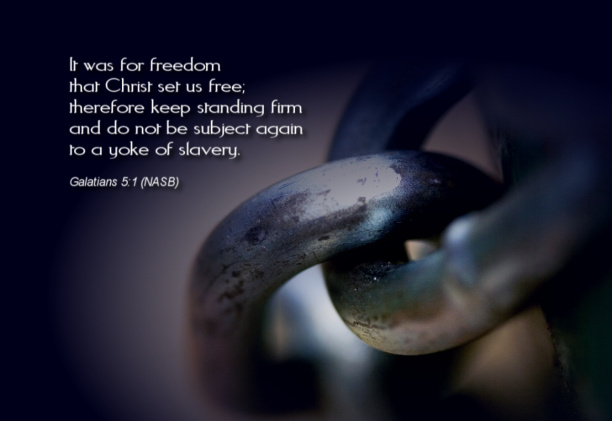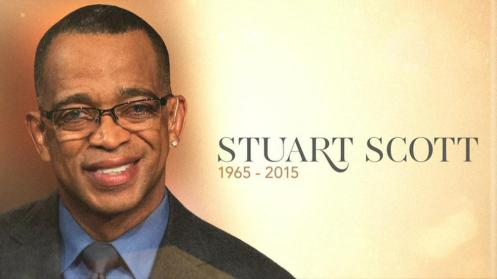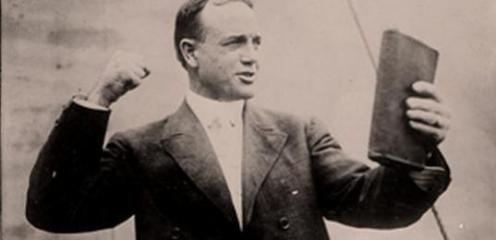The word of the Lord came to me: 2 “Son of man, prophesy against the shepherds of Israel; prophesy, and say to them, even to the shepherds, Thus says the Lord God: Ah, shepherds of Israel who have been feeding yourselves! Should not shepherds feed the sheep? 3 You eat the fat, you clothe yourselves with the wool, you slaughter the fat ones, but you do not feed the sheep. 4 The weak you have not strengthened, the sick you have not healed, the injured you have not bound up, the strayed you have not brought back, the lost you have not sought, and with force and harshness you have ruled them (Ezekiel 34:1-4).
This article is a follow-up to my open letter to Ryan Peterson’s friends and family. In that letter, I desired to offer comfort and hope that Ryan’s life was properly and lovingly acknowledged. It is my deepest and most sincere desire to highlight the goodness in Ryan. The goodness that flowed to him through his relationship with his Lord Jesus Christ. Yes, I fully believe Ryan was a Christian, and as I said in my first article, that was not contingent upon his confession of sin or lack thereof but only on the work of Christ.
While I desire to be kind and gracious, what I heard from these funeral messages was grievous and unnecessary. It is the tone and tenor of which these grotesque examples of sermons were preached. It was as if they had no life experience with Ryan and didn’t believe him to be a saved man, although they didn’t dare to come right out and say it. What they did was hint around the topic and leave the audience wondering what egregious sin had taken over Ryan to cause him to end his life.
There was an agenda to this funeral service, and the only desire from those leading was to make their points with as much rigor and demand as they place on the lives of their congregants on a day-in and day-out basis. The Christian life was never designed to be under authoritarian rule. If you picked up anything from those sermons, I trust you saw the authoritarian and hostile environment GFC represents.
God has something to say about those who rule harshly, and the passage above was a firm rebuke to those shepherds of Israel who had a self-focused agenda. The passage needs little to no explanation. As for those who had to endure these sermons, I want to point out a few things about what the passage says: “The weak you have not strengthened (verse 4).” When you went to the funeral of Ryan Peterson, were you weak? Did you feel sick, injured, and lost? Was there a great loss to your soul?
Perhaps you thought you would hear good things about Ryan and his life that would strengthen or lift you, but it didn’t. It only felt condemning and harsh, “with force and harshness, you have ruled them.” What type of encouragement was this, and what was it designed to do, or who was it designed to serve?
Well, it certainly didn’t bring grace to the hearer. Despite Mike Reid mentioning he was a pastor at Grace Fellowship Church, grace was never mentioned again. Grace should have been the central focus; instead, it was sin.
The topic of sin is a popular one at GFC. It is THE topic. A great deal of time and energy is devoted to rooting out the sins of the congregation. This can be done through preaching, as you just experienced, personal interaction with the pastors, or via the admonishments of the other congregants.
It is a difficult society to reside in if you have sin, which we all do (1 John 1:8-9). These sermons were a looking glass into a society that has left countless people on the brink of hopelessness as they continue to muddle through another joyless day. You are only as good as your last interaction. They seem to forget that our worth is in Christ, not in behaviors and actions. Listening to Tyler preach, I wondered the point of bringing up Ryan’s sin and why this was so important.
I hate to refresh your memory on what he said, but this is warped and twisted thinking of a man who should seek to expound the glories of a Savior. Tyler said, “In the last four weeks, there have been hidden sins discovered that Ryan had kept from everyone for quite a long time.” “The weight of unconfessed, hidden sin will destroy anyone.” [1] (30:50).
Then he makes a disclaimer. “If anyone hears this and is shocked, and it makes them think differently about Ryan, it shouldn’t because the Bible says no one is good.”
I wish I could say I don’t understand what he is trying to say. The message here is loud and clear, having spent much time with these people. For the disclaimer’s sake, this is only my opinion, as is the rest of this article, but Ryan’s memory deserves better than this.
In modern parlance, Bolkema is deflecting away from the responsibility they, as “shepherds,” bear. It’s not anyone’s fault, but Ryan’s because of his sin. His sin killed him. He was hiding it, and it destroyed him. It leaves me so empty and hollow inside thinking that this is how they cast dispersion onto Ryan and relieve themselves of any role they may have played in Ryan’s frame of mind, of which nobody truly knows except for him and God.
Here is the problem for them. They have no category for any mental illness, mental collapse, breakdown, depression, or a short-term imbalance in the brain. In GFC theology, the only answer is sin. Studying the brain and the science involved in knowing the countless scenarios that can bring a person to such an end is not a simple, black-or-white solution (See Tony Miano’s post below). It is shameful they said that Ryan decided to abandon his family, but this puts the focus on him and draws it away from them.

As one pastor I spoke to said, “You don’t minister to the living by kicking the dead,” and that is an awful burden for all those who loved Ryan to have to bear. In medical terms, this is a case of malpractice and misconduct. It is a gross case of misdiagnosis. You would think that showing grace, mercy, and compassion to those left behind and an invitation to search out the God that sent His Son to die for sinners might offer a more compassionate approach. Still, you have Mike Reid preaching the message he has preached for fifteen years: sin, judgment, and condemnation.
Who preaches a message like this, at a funeral no less, without believing these people need to be clubbed over the head rather than shown that Christ is a loving God that offers forgiveness from sin and rest from a weary world? Can the message of salvation be preached without berating and belittling?
Why can’t they say that we know Ryan was struggling, but we saw evidence of faith in his life, and we have complete confidence that he’s with the Lord?
Why?
Because sin is so important to their theology, Forty-one (41) times, Reid says the word sin or a derivation of the word in his “sermon,” now, to be fair, about six (6) of those discuss Christ as not having been a sinner, but that is still thirty-five (35) times he is discussing sin. He also uses the word wrath fourteen (14) times, condemn or condemned nine (9) times, and judgment four (4) times. And keep in mind this was only a 15-minute sermon.
In contrast, he only mentions grace when he states he’s a pastor at Grace Fellowship Church. He uses the word mercy three (3) times (outside of the song they sing at the end), and forgiveness is only mentioned once. He uses the word love three times in the context of God’s love.
This imbalance could not be more obvious. If I went back through all the years of Reid’s preaching nothing has changed. The imbalance here is unbearable and the primary reason we left and so many others left through the years.
In his excellent work, The Whole Christ, Sinclair Ferguson writes, “In essence [legalism] it is any teaching that diminishes or distorts the generous love of God and the full freeness of his grace. It then distorts God’s graciousness revealed in his law and fails to see law set within its proper context in redemptive history as an expression of a gracious Father. This is the nature of legalism. Indeed we might say these are the natures of legalism.” [2]
In one sentence, Ferguson mentions grace three times. The gospel is good news, but one would be hard-pressed to walk away from those sermons, having received this as good news. For anyone who would listen, it isn’t easy to endure these men’s preaching, demeanor, and tone, which tragically hinders the good news.
Sinclair Ferguson highlights how important tone can be to preaching, “[T]he same reality was noted in the life and ministry of Robert Murray M’Cheyne. It was perhaps most movingly expressed in a letter that lay unopened on his desk on the day he died at the age of twenty-nine. A correspondent writing to thank him for a sermon he had preached commented that it was not merely what he had said but the manner in which he spoke that had made an indelible impression.” [3]
It is hard to miss the “tone” that emanates out of the mouths of Reid and Bolkema. It rarely, if ever, appeals to the conscience in a way that exudes love, care, and compassion, but its focus is the legal demands of the law and a heavy conviction of sin. That is not to say sin has no bearing on the life of one coming to Christ, but for the ministry of GFC, it is an ever-present formula presented to the congregation in a fire-hose manner.
Someday, I pray they will see the truth of what this place has done to people. They crush the spirit, wound the soul, and feed themselves rather than the people. I can only guess the food they enjoy is their quest for power and dominance. How can I make such a claim? It comes down to my experience, observations, and what the Scriptures teach us. Several key passages show us the evidence of false teaching. Listen to the words of these verses,
Jesus said, “Beware of false prophets, who come to you in sheep’s clothing but inwardly are ravenous wolves. You will recognize them by their fruits” (Matt 7:15—16).
False prophets are called wolves, and what do wolves do to sheep, but kill and eat them, and the fruits of their teaching evidence this. I’ve written consistently about the damage done and specifically highlighted testimonies of those damaged through the years.
Yet because of false brothers secretly brought in—who slipped in to spy out our freedom that we have in Christ Jesus, so that they might bring us back into slavery— (Gal 2:4).
False brothers will destroy Christian liberty and freedoms. External appearances will always judge you, and freedom and liberty will be destroyed.
But false prophets also arose among the people, just as there will be false teachers among you, who will secretly bring in destructive heresies, even denying the Master who bought them, bringing upon themselves swift destruction (2 Pet. 2:1).
The warnings are abundant, and these people will arise from within Christianity, as Paul also said in Acts 20:28. Again, he says these are wolves, and they will not spare the flock. When the flock is scattered, injured, wounded, and left uncared for, that is evidence of false prophets or wolves. Paul likely had Ezekiel 34 in mind as he said these words to the Ephesian elders.
The leadership of Grace Fellowship has a long and illustrious track record of this behavior. For those affected by this place, you are left to pick up the pieces, you will someday want answers, and I write as one willing to try and help answer them. Those calls, emails, or messages have, will, and do come. I have responded to many of them, and I pray someday, there will be answers that can help you cope with the damage that has been done.
It is not a healthy environment. It is not a place where you can take rest and comfort. It is rightly called a high-demand group for good reason. They will demand a lot from you, they will take a lot from you, and the only way NOT to be a victim is to speak out. I pray that anyone who reads this will understand my desire to expose such evil and call it what it is.
In Christ’s love, for Christ’s true church.
Kevin
[1] https://www.sermonaudio.com/sermoninfo.asp?SID=1113232254135642
[2] Sinclair Ferguson, The Whole Christ, Legalism, Antinomianism, & Gospel Assurance—Why the Marrow Controversy Still Matters, (Wheaton, IL: Crossway, 2016), 95.
[3] Ibid., 228.




